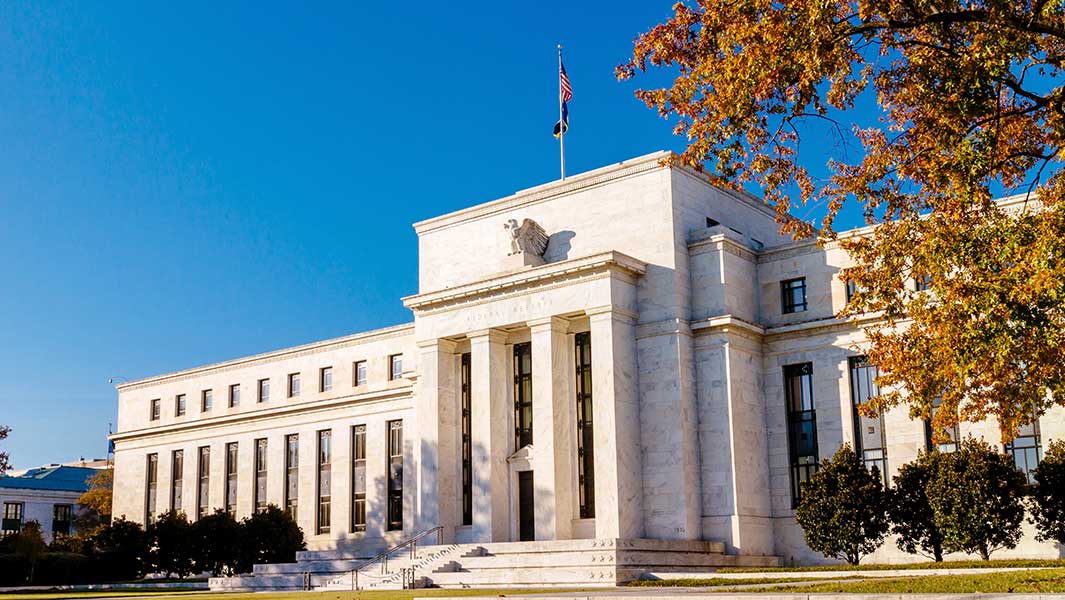[ad_1]
The Federal Reserve hiked its key interest rate to a range of 3.75%-4% on Wednesday, while signaling that rate hikes may begin to slow. However, Fed chief Jerome Powell indicated the top rate may rise close to 5%. After the policy statement, the S&P 500 moved higher, then sold off hard as Powell spoke and into the close.
X
The Fed Statement’s Key Line
The Fed meeting statement reiterated the key line used at every meeting since March: The policy committee “anticipates that ongoing increases in the target range will be appropriate.”
However, the new statement indicated that the Fed policy committee will take into account “the lags with which monetary policy affects economic activity and inflation.”
Even the modest change in language spoke volumes. Clearly, there is a significant fraction of the Fed’s policy committee worried that the barrage of rapid-fire, 75-basis-point hikes risks going too far.
Powell Pushes Back On Fed Pivot Talk
Powell suggested that the pace of rate hikes matters less than how high rates go and how long the Fed holds rates at a restrictive level.
“We still have some ways to go,” Powell said. “It is very premature to be thinking about pausing.”
He expressed a view that the Fed’s policy rate will end up higher next year than policymakers expected in September.
The quarterly projections released in September showed the federal funds rate rising to 4.6%, implying a target range of 4.5% to 4.75%.
Powell’s view that the top rate will be higher suggests, at a minimum, a peak range of 4.75% to 5%.
The Fed chair also stressed that risks are skewed toward inflation becoming entrenched. “From a risk-management standpoint,” he said, the primary worry is “either failing to tighten enough or loosening policy too soon.”
The Fed doesn’t want to overtighten, he said. But if it does, policymakers can use their tools to support growth, like they did at the start of the pandemic.
The bigger worry is that inflation becomes entrenched over the next few years, which would ultimately be worse for the job market and households that are feeling the most pain from inflation.
S&P 500, Treasury Yield Reaction
After the Fed meeting statement, the S&P 500 turned modest losses into a 0.5% gain, then dived lower. The S&P 500 finished down 2.5%. The Dow Jones industrial average fell 1.55%, while the Nasdaq composite slid 3.4%.
Through Tuesday, the S&P 500 was off 19.6% from its all-time closing high on Jan. 3, but up 7.8% from its Oct. 12 low. The Dow Jones has climbed 13.7% from its 52-week closing low on Sept. 30 and now sits 11.3% off its record high. The Nasdaq has rallied 5.5% since Oct. 14 but remains 32.2% below its peak close.
Be sure to read IBD’s The Big Picture column after each trading day to get the latest on the prevailing stock market trend and what it means for your trading decisions.
After the Fed statement, the 10-year Treasury yield fell 5 basis points to 4%, but popped to 4.09% on Powell’s hawkish talk.
YOU MAY ALSO LIKE:
These Are The 5 Best Stocks To Buy And Watch Now
Join IBD Live Each Morning For Stock Tips Before The Open
IBD Digital: Unlock IBD’s Premium Stock Lists, Tools And Analysis Today
The Federal Reserve Race To Take Down The S&P 500 And Break The World
Futures Fall, Market Rally Reeling After Powell Signals Higher Peak Rate
[ad_2]
Image and article originally from www.investors.com. Read the original article here.

